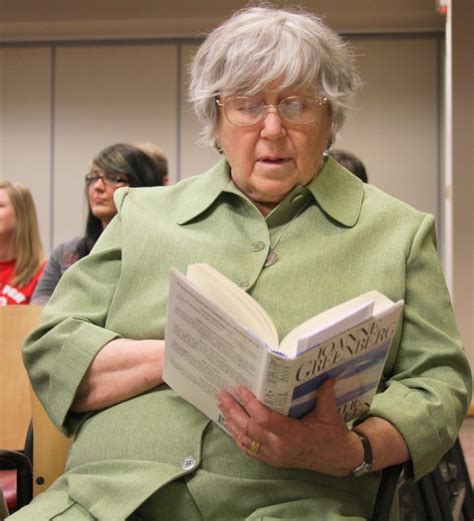A Quote by Herman Melville
The most mighty of nature's laws is this, that out of Death she brings Life.
Related Quotes
Woman possesses the cosmic force of an element, an invincible force of destruction, like nature's. She is, in herself alone, all nature! Being the matrix of life, she is by that very fact the matrix of death - since it is from death that life is perpetually reborn, and since to annihilate death would be to kill life at its only fertile source.
Was it not most meet that a woman should first see the risen Saviour? She was first in the transgression; let her be first in the justification. In yon garden she was first to work our wo; let her in that other garden be the first to see Him who works our weal. She takes first the apple of that bitter tree which brings us all our sorrow; let her be the first to see the Mighty Gardener, who has planted a tree which brings forth fruit unto everlasting life.
For the religious, passivism [i.e., objects are obedient to the laws of nature] provides a clear role of God as the author of the laws of nature. If the laws of nature are God's commands for an essentially passive world ..., God also has the power to suspend the laws of nature, and so perform miracles.
I am thoroughly convinced that no individual or nation can live by holding itself apart from the community of others. Give and take is the law; and if India wants to raise herself once more, it is absolutely necessary that she brings out her treasures and throws them broadcast among the nations of the earth, and in return be ready to receive what others have to give her. Expansion is life, contraction is death. Love is life, and hatred is death. We commenced to die the day we began to hate other races; and nothing can prevent our death unless we come back to expansion, which is life.
Laws, it is said, are for the protection of the people. It's unfortunate that there are no statistics on the number of lives that are clobbered yearly as a result of laws: outmoded laws; laws that found their way onto the books as a result of ignorance, hysteria or political haymaking; antilife laws; biased laws; laws that pretend that reality is fixed and nature is definable; laws that deny people the right to refuse protection. A survey such as that could keep a dozen dull sociologists out of mischief for months.
How shall we define occultism? The word is derived from the Latin occultus, hidden; so that it is the study of the hidden laws of nature. Since all the great laws of nature are in fact working in the invisible world far more than in the visible, occultism involves the acceptance of a much wider view of nature than that which is ordinarily taken. The occultist, then, is a man who studies all the laws of nature that he can reach or of which he can hear, and as a result of his study he identifies himself with these laws and devotes his life to the service of evolution.
You may command Nature to the extent only in which you are willing to obey her. You cannot intelligently obey that which you do not comprehend. Therefore I also say, ask of Nature that you may be one with her and she will whisper her secrets to you to the extent in which you are prepared to listen. Seek to be alone much to commune with Nature and be thus inspired by her mighty whisperings within your consciousness. Nature is a most jealous god, for she will not whisper her inspiring revelations to you unless you are absolutely alone with her.
If the world is an aggregate of relatively independent regions, then any assumption of universal laws is false and a demand for universal norms tyrannical: only brute force (or seductive deception) can then bend the different moralities so that they fit the prescriptions of a single ethical system. And indeed, the idea of universal laws of nature and society arose in connection with a life-and-death battle: the battle that gave Zeus the power over the Titans and all other gods and thus turned his laws into the laws of the universe.
Later, she would remember these years, and realize with astonishment that she had, by fifteen, decided on most of the assumptions she would carry for the rest of her life: that people were essentially not evil, that perfection was death, that life was better than order and a little chaos good for the soul. Most important, this life was all. Unfortunately, she forgot these things, and had to remember them the hard way.






































